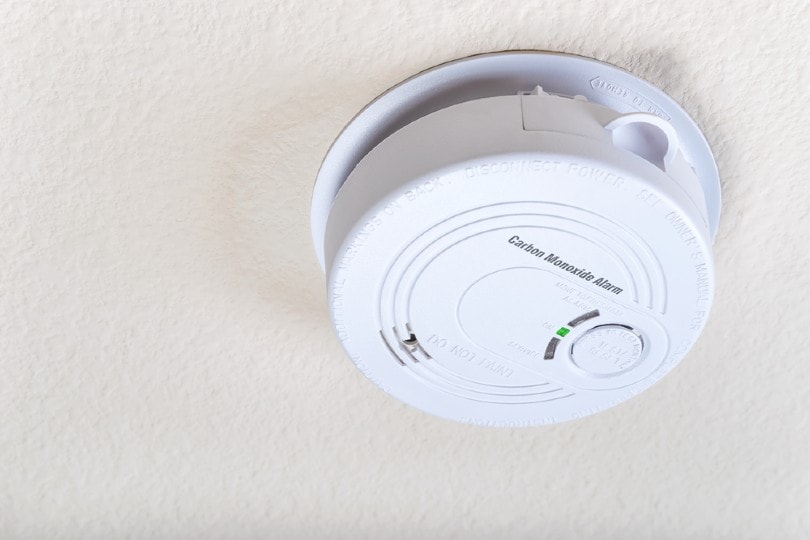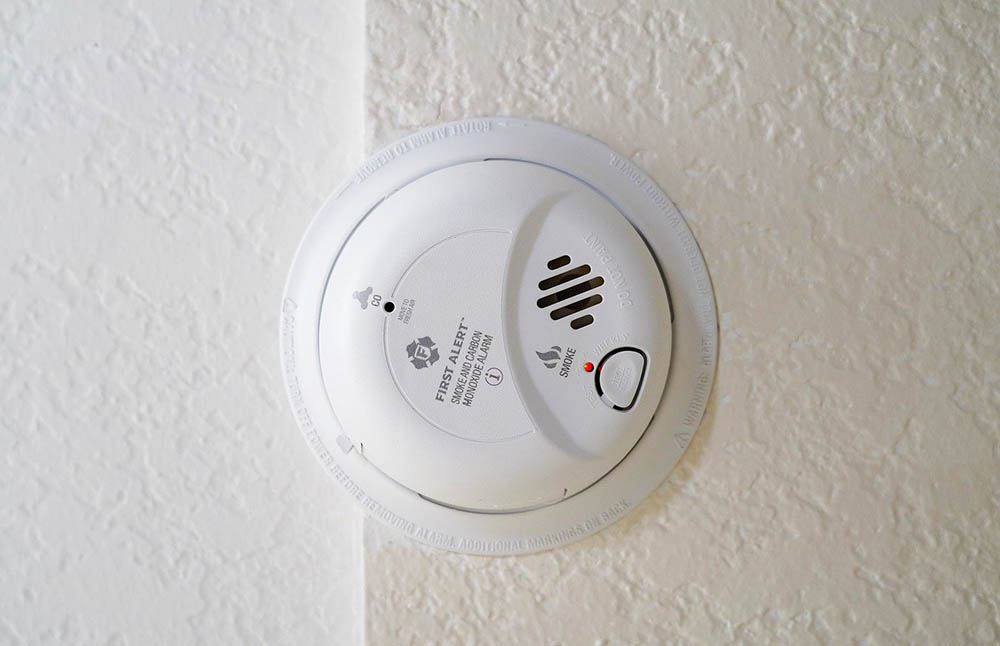Can Natural Gas Be Detected by A Carbon Monoxide Detector? Facts & FAQ
-
Brooke Bundy
- Last updated:

Like carbon monoxide, natural gas is an odorless gas that can become dangerous if leaks. You might wonder if your carbon monoxide detector will also pick up on excessive amounts of natural gas. Still, it typically won’t unless you have a unit that was made to detect multiple hazards. Here are some ways you can tell if you have a natural gas leak in your home, as well as what to do if the situation arises.
Carbon Monoxide vs. Natural Gas Detectors
Although natural gas is combustible and can kill you just as easily as carbon monoxide, it’s not quite as big of a threat because it stinks, as compared with the odorless, deadly stealth of carbon monoxide. If you are concerned about a potential leak, or worried you might not detect one in your sleep, you can invest in natural gas detectors that function similarly to smoke alarms or buy a carbon monoxide detector that specifically has an added natural gas detector function. If you choose a standalone model, you can install battery-powered or plug-in natural gas detectors or buy a handheld detector in case of emergency.
Unlike smoke detectors, there’s no need to place natural gas detectors throughout your house. Instead, only install them near appliances that use natural gas, such as furnaces and stoves. Just be sure not to install them too close to the source of natural gas, or the alarm might sound over something as harmless as scrambled eggs sizzling on the stove.

How to Detect a Natural Gas Leak
Natural gas companies are legally required to add a scent to their product to make detection easier since natural gas is odorless. If you smell something like rotten eggs, you might have a natural gas leak. Check to see if you might have left the stove or fireplace on. If so, turn it off immediately, and open windows and exterior doors to air out the gas. If you can’t find a reason for the smell, assume there is a leak and get out of the house.
What to Do in the Event of a Natural Gas Leak?
Like carbon monoxide leaks, natural gas leaks can also suffocate you so it’s important to act quickly. Thankfully, natural gas leaks are easier to detect because of the tell-tale smell. If your natural gas detector goes off, or if you notice the characteristic charred, sulfuric smell with no probable cause, leave your house immediately, and call your natural gas provider on your cell phone once you’re outside to see what to do next. Never place a call on a landline, or flip on any light switches as you leave. Natural gas is very combustible, so you don’t want to do anything with electricity that could potentially spark and catch fire.
Conclusion
Natural gas is combustible, a large amount can suffocate you in an enclosed area. While you should always flee your house if you suspect a leak, there is no reason to live in fear. You can buy a plug-in or battery-powered natural gas detector if you’re worried about not catching it in time, but usually, your house will smell foul, and you’ll know that you have a leaked pipe.
Featured Photo Credit: Leena Robinson, Shutterstock
Contents
